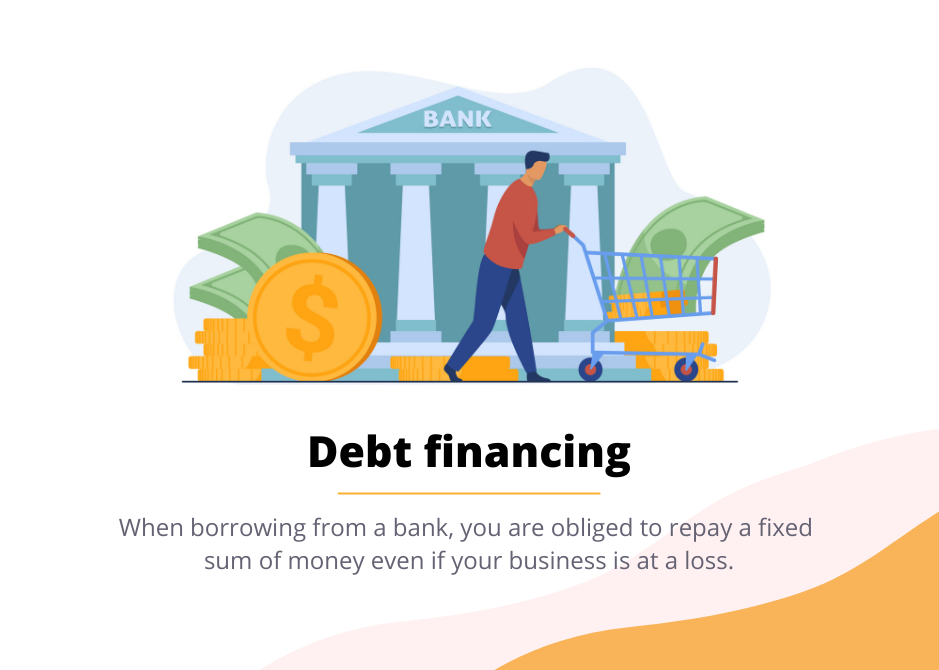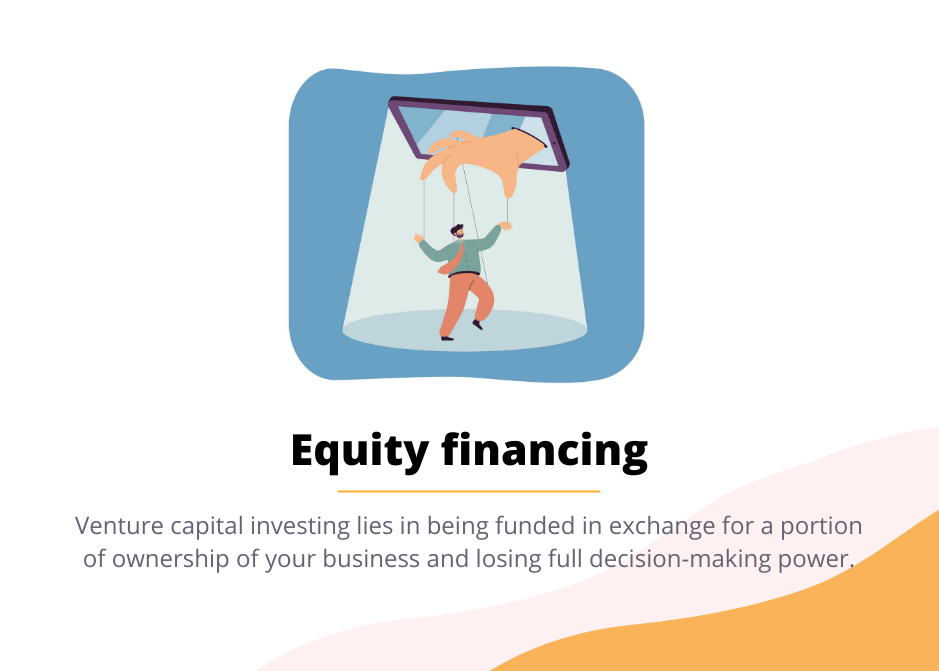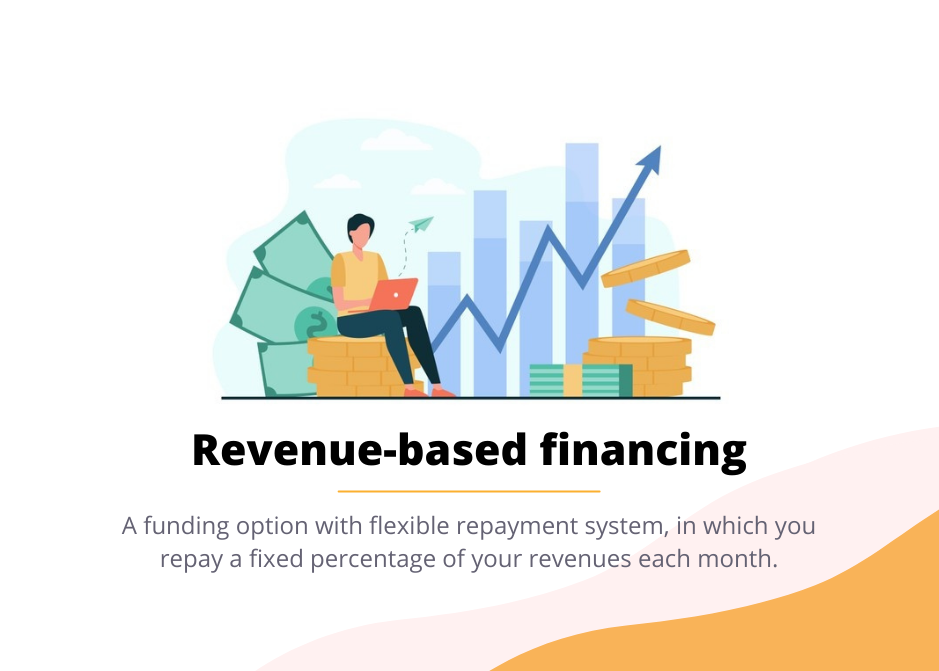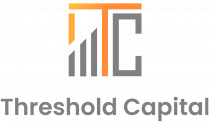The most popular financing options for businesses: Which one is the best?
For any company to achieve great success, there are three main factors that need to be in place: a great product or service, the right team of people, and capital.
While the first two mentioned assets are very individual, the third important one – money for growing your business – is something that you need to obtain from external sources and you just must believe that you have chosen the best option for your business.
And by talking about the external sources, that should help you on your entrepreneurial journey. Traditionally, there are two major players to choose from: banks and equity investors. But there is also a new emerging option for today’s innovative businesses – revenue-based financing.
Let's have a look at what each of them has to offer.
Borrowing from a bank
The most popular form of receiving capital known as debt financing lies in borrowing money from a bank, where the total amount needs to be fully repaid in a set future time together with interest.
Within the duration of the loan, the lender (bank) is being returned a certain portion of the lent money plus interest, which is a fixed amount and needs to be paid until a certain date each month.
It is important to mention that in the case of debt financing, it does not matter whether you are currently profitable, or you have been hit hard by financial troubles, which makes the repayments difficult to carry out. Even if you are at a loss, you still need to return the agreed sum of money.

So, what are the consequences if you fail to return the requested amount on time? Extra interest, fines, penalties, legal prosecutions – just to name a few.
Moreover, the eligibility criteria for receiving a loan can be kind of challenging for a growing business – not that you already need to generate a substantial profit to be considered “safe”, you also need to have enough tangible assets as collateral. If not, you have to put your own personal assets at risk – often including the roof above your head.
However, if you are a well-established business with high assets and revenues, a bank can lend you money with a very low-interest rate, which is making it the cheapest option of all three.
Equity financing
Yes, there exists also a funding option in which you receive capital actually without borrowing money from anyone. If a business teams up with an equity investor, it will provide capital without the need for its repayment. However, as you may guess now, it is not completely free.
Funding in the form of equity financing - or else known as private equity or venture capital investing - lies in being funded in exchange for a certain portion of ownership of your business.
As it may seem, at first sight, equity investment is not that founder-friendly. You may oppose now - but you do not need to return the capital, right? It is true, but you are losing something potentially much more valuable – ownership and full control of your company.

And the consequences? You cannot make business decisions on your own, you need to share all your future company's profits and if you sell the company - yes, you have guessed it right - you share the money with your investor as well.
In the end, if the company really takes off, you may sell your equity much cheaper than you initially could have.
On the positive side, there are cases in which equity investing is the right option. It is when a company is still without revenues (usually because of heavy research and development or regulations) and also when it is considered a very high risk for other funding options.
Revenue-based financing (RBF)
As you could already guess by its name, revenue-based financing is a funding option in which the lender provides you with growth capital that will be repaid by a certain fixed percentage of your revenues until the total repayment amount is paid back.
Is it that simple? Yes, it is!
What does it mean in practice then? Well, as you are repaying your debt in the form of a portion of your revenues, the amount of money that you need to repay each time is very flexible, solely dependent on the revenues generated.

Let's say you are going through a really bad period, and your revenues are lower than usual. That means your repayment will be proportionally lower as well!
And what about the opposite scenario? If your revenues increase, so do your repayments. But in the case of RBF, that is not a bad thing at all – in reality, it is a big advantage because it just gives you a chance to repay a larger portion of money faster, which can later allow you to repay the total repayment amount much earlier.
And – the best part – if you repay your debt earlier than planned, you are set free from any other repayments and responsibilities towards the lender.
Which is the right financing option for your business?
To conclude, if you are a company looking for the right way to receive funding for accelerating your growth, you have 3 main options to choose from and to put it simply, your choice should be based on the current situation of your company.
Firstly, if you are a well-established business with a long history of revenues and a lot of assets to use as collateral, borrowing money from a bank is the cheapest and best option for you.
Secondly, if you are a relatively new business, which does not generate any revenues at the moment, but you have a great potential for future success, equity investors will be more than happy to back you up.
And finally, if you are a business activity for at least two years and generating solid revenues, but at the same time you do not want to risk your personal assets or a loss of your company ownership, revenue-based financing is the right choice for you.
Wondering what offers for financing you can receive from Threshold Capital? Fill in a short registration form and start your journey towards success today!




